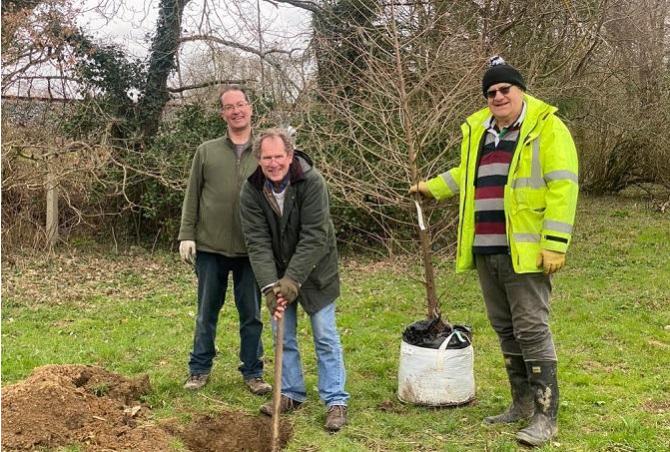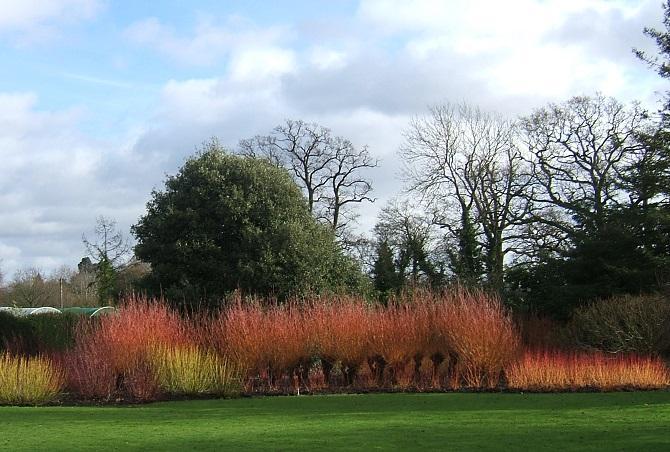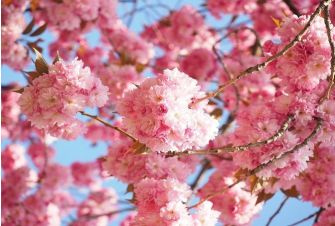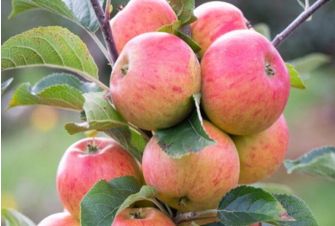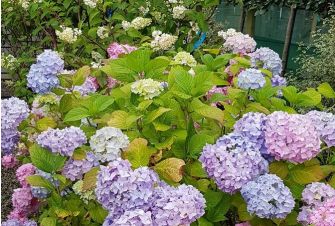Plant a tree to celebrate The Coronation of His Majesty King Charles III
The Coronation of His Majesty King Charles III, together with The Queen Consort, Camilla, takes place on Saturday, 6 May 2023, at Westminster Abbey. This historic event is the first coronation in almost 70 years. Many individuals as well as parish councils, groups and businesses will be planting a tree to commemorate this significant royal occasion.
English Woodlands can offer a range of trees to mark this symbolic event and our experts are available to provide advice and guidance for those who require assistance. We can suggest suitable trees for your site together with advice regarding planting. We also offer a site visit and planting service for those who require this additional facility. You can view our selection of trees HERE.
The Queen’s Green Canopy was launched back in March 2021. This unique tree planting initiative was created to mark the late Queen, Her Majesty Queen Elizabeth II’s Platinum Jubilee. His Royal Highness, The Prince of Wales, now His Majesty King Charles III, planted the first tree to launch the QGC initiative and more than one million trees have since been planted in her name.
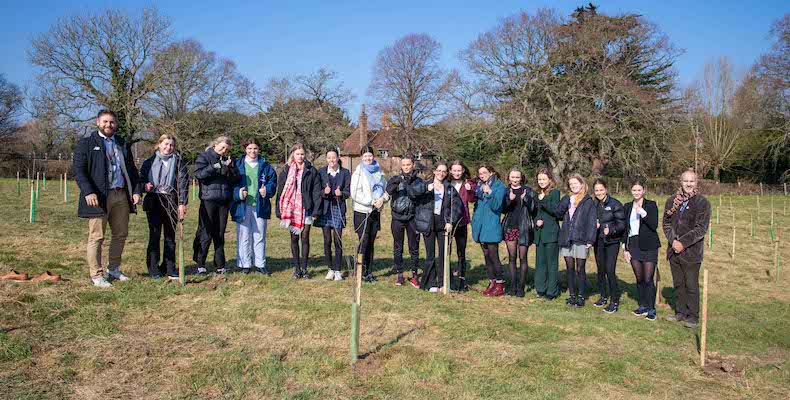
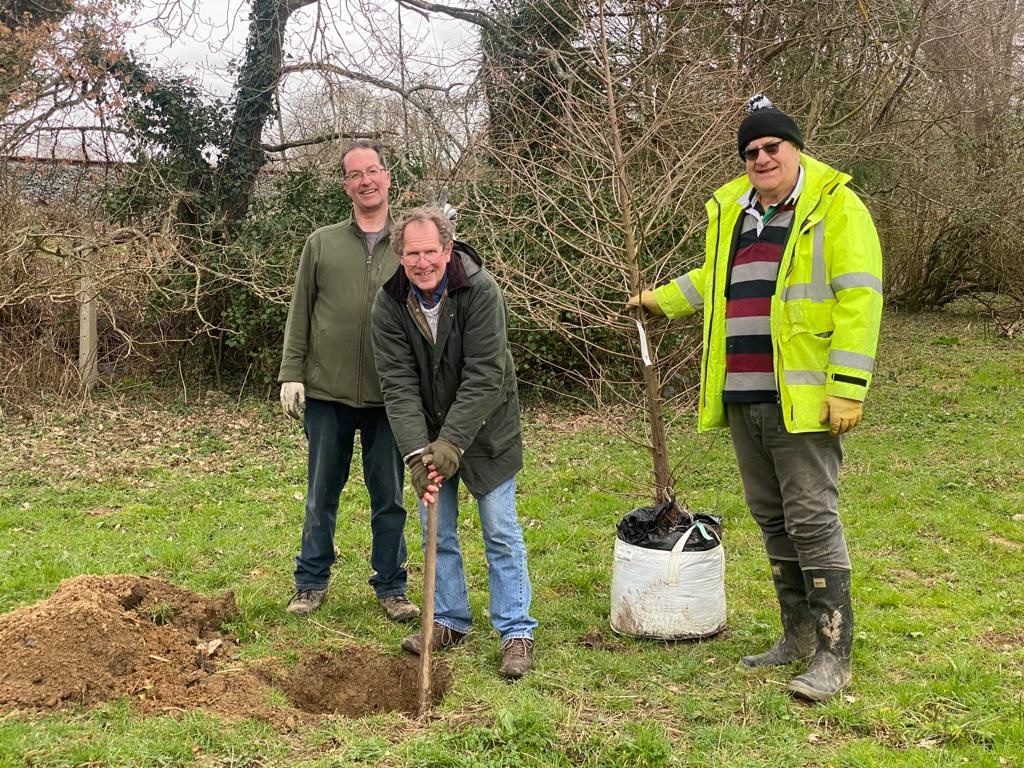
Above: Salehurst & Robertsbridge Parish Council wanted to plant a tree to form part of the Queen's Green Canopy. As the chosen site is prone to flooding, English Woodlands suggested a Taxodium distichum, swamp cypress, which will love the local conditions.
A Coronation Ceremony that looks towards the future while being rooted in tradition
It is fitting that tree planting will continue in order to mark the momentous occasion of His Majesty’s Coronation. A statement from Buckingham Palace revealed that the ceremony will look ‘towards the future while being rooted in longstanding traditions and pageantry’. King Charles III has championed environmental issues for many years. He first spoke out about his climate concerns at the age of 21 and has supported conservation and environmental causes ever since. Many view His Majesty as a leading environmentalist.
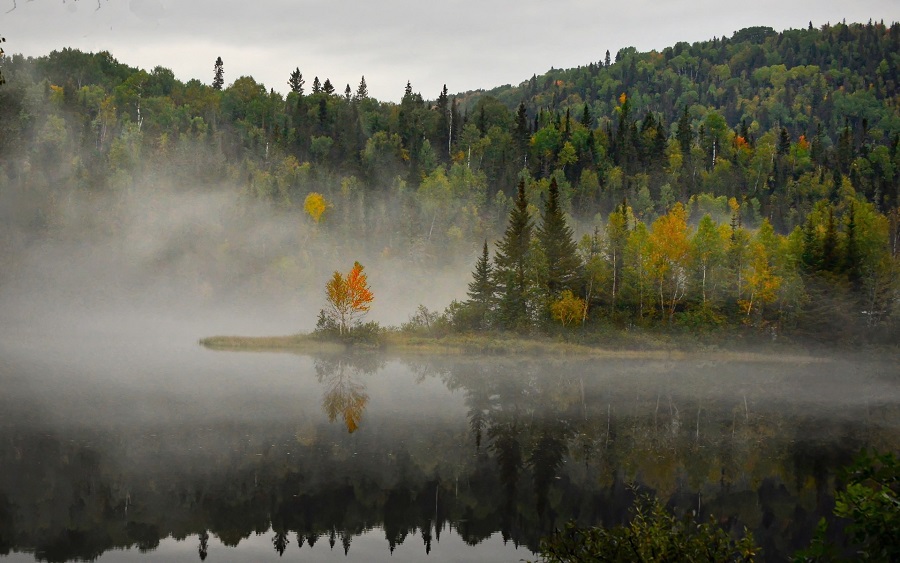
Britain is said to be one of the least wooded countries in Europe, with around 13 per cent tree cover. This compares to an average in Europe of over 35 per cent. The total number of trees in the UK is approximately 3 billion, calculated by the analysis of aerial photos. The relative numbers of people should also be taken into consideration. Nearly one per cent of the world's population is British, but the UK's tree numbers amount to only around one thousandth of the global total. There is ample scope for more tree planting in the UK.
How important are trees?
Trees are vital to mankind, and to the planet. They help to clean the air that people breathe. They filter water; stabilise the soil and provide valuable shade and protection. Trees provide food, shelter and habitat for a wide range of plant and animal life in addition to fungi. They absorb carbon from the atmosphere and store it safely away. Trees are also good for mental health - biophilia is a term that describes a human's innate tendency to be drawn to nature, i.e: living plants, processes and creatures. Of course, trees also enhance the environment in a visual manner too.
Did you know these five fun facts about trees, including one that relates to King Charles III?
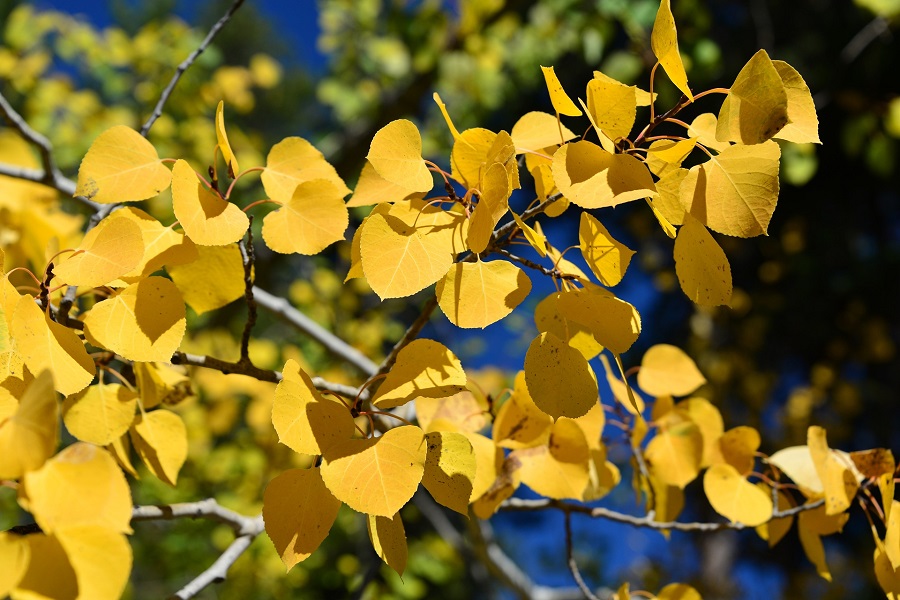
-
Some tree species are said to be 'biologically immortal'. In other words, they are capable of living forever. The Aspen, Populus tremuloides of North America is one such example (pitured above). The part above ground will eventually disappear, but the root system of the colony can live on for thousands of years and can continue to send up new trunks above the ground. The UK native Populus tremula also spreads by suckers, but not quite so extensively as P. tremuloides.
The bristlecone pine is another example (pictured below). This covers three species of Pinus native to the USA, some of which are more than 5,000 years old. Their ultimate age capability is unknown, however, they seem to be vulnerable to changing climate conditions, particularly drought. Ginkgo biloba can also live for many thousands of years. it is said that a 1,000 year old Ginkgo has an immune system equivalent to a 20-year-old.
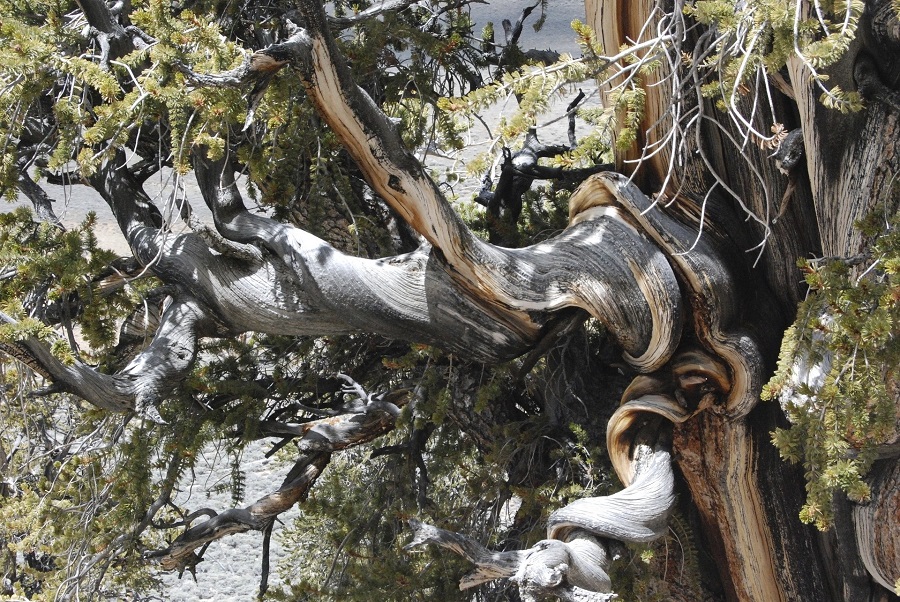
-
There are some trees of which the ultimate height is unknown. The tallest species is said to be coastal redwood, Sequoia sempervirens, (pictured below), and the largest of these is called Hyperion, situated in Northern California. It has been measured at 116m high, but it is still growing! It is thought that the limiting factors are principally environmental and weather related, including the atmospheric pressure at high altitudes. The height that Sequoia sempervirens is able to grow to is a combination of its own morphology and environmental conditions, just for its cousin, Sequoiadendron giganteum, the Wellingtonia.
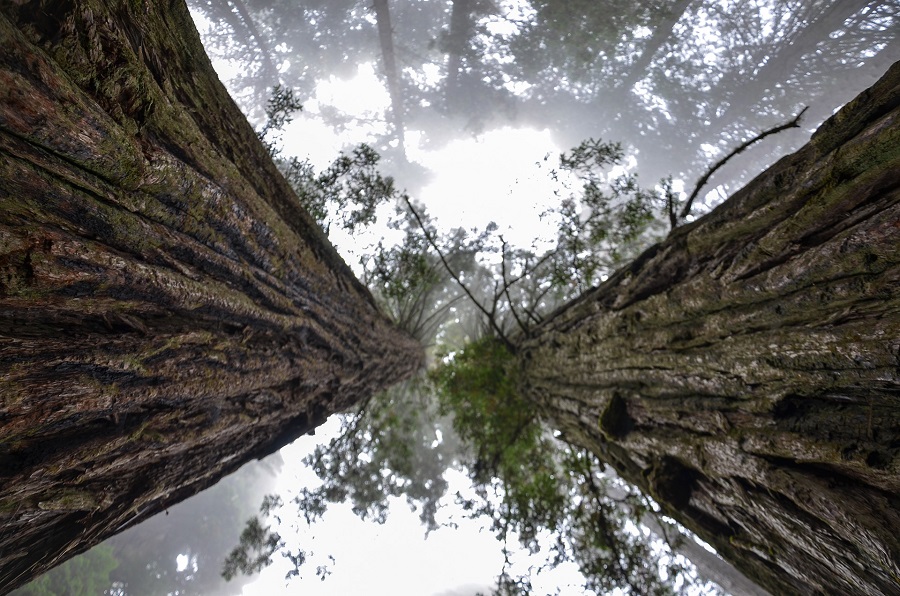
-
Trees can help to make people happy - they reduce stress and boost creativity. It's partly due to chemicals called phytoncides that are the subject of ongoing research. They are thought to help reduce blood pressure, lower anxiety levels and increase pain thresholds. Phytoncides are said to have antibacterial and antifungal qualities and might help the human body to increase white blood cells which attack viruses and tumors. Trees also provide a positive visual and olfactive (sense of smell) effect, which can lead to a feeling of serenity. All good reasons for the popularity of 'forest bathing' in Japan. More about the benefits of nature to health and wellbeing can be found HERE.
-
People who love trees and woodland are called nemophilists. The word stems from the Greek: nemos, meaning 'grove' and philos, meaning 'affection'.
-
King Charles III is known to perform a charming ritual during tree planting. He ‘shakes hands’ with every tree he plants, giving a branch a gentle shake in order to wish it well.
A reminder about tree planting seasons
Here at English Woodlands, we would like every single tree to be given the very best chance of not only surviving, but thriving. It is for this reason that we recommend planting most trees during the ideal seasons, namely autumn, winter and early spring. English Woodlands supports the QGC advice to: Plan; Plant and Protect. Containerised trees can be planted throughout the year but will require regular watering and close attention during warmer weather.
Take a look at trees that are currently available, but don't hesitate to contact us if you need assistance. We can deliver trees across most of the UK, although there are restrictions on size outside of our local counties of East Sussex, West Sussex, Kent, Surrey and Essex.

